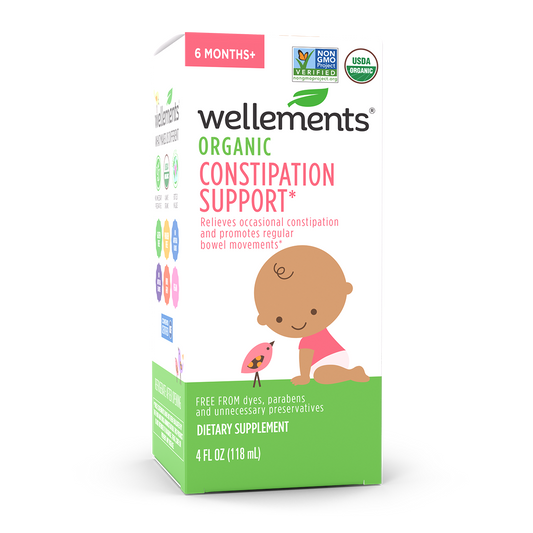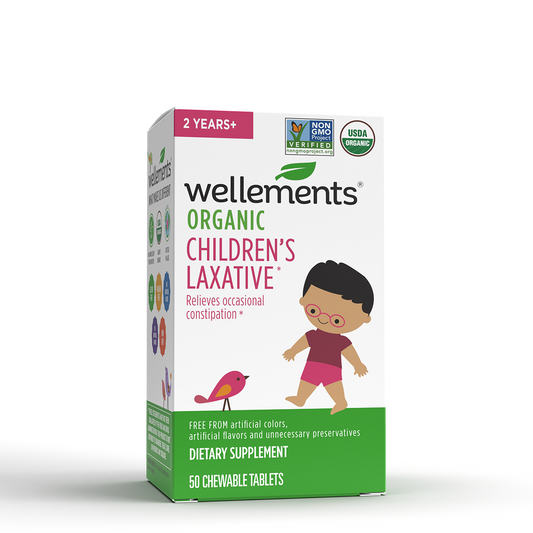Baby Poop 101: Everything you Never Thought You’d Want to Know
| updated:Share

Poop is the topic of the day. Why talk poop? Because poop happens and with babies, it happens all day long. Not really, but it definitely feels like it – especially if you’re the one changing the diapers. But what’s normal and what’s not normal? At what point should a baby’s poo concern parents and when is it just gross? Here’s everything you never thought you’d want to know about baby poop.
Babies First Poop
Regardless of what a baby eats, their first poop will be the same because they are relieving themselves of amniotic fluid ingested in the womb. The first movement will be a dark-green almost black color, with a tar-like texture. As baby ingests mama’s milk or formula, their poop will change to a different consistency. At first, babies will poop after almost every feeding as their little bodies turn their digestive systems on.
Breastfed Babies
Breastfed babies excrete different bowel movements than formula-fed babies. Breastfed baby poop will be yellow, runny, and seedy. Breastmilk poop is not as odorous as formula milk and actually smells sweet, which you may think is strange for a bowl movement. However, the color can stain clothing so keep plenty of clean clothes on hand. The great news about breastfed babies is that with time, they will fill fewer diapers. Older breastfed babies might change their normal habits to pooping once a day or less. It’s actually not uncommon for a breastfed baby to go several days without pooping as their little bodies use up everything they consume. Still, be sure to watch for changes in the demeanor. If they seem cranky or bloated, they may need a little help.
If a breastfed baby has bright green bowel movements, they may be receiving too much fore-milk and not enough of the hind-milk. Mom’s can fix this issue by expressing the fore-milk before feeding a baby or by keeping the baby on one breast per feeding.
Formula-Fed Babies
Babies dining on formula produce a greenish-brown, greenish-tan, or pasty poop, thicker than breastmilk bowel movements. If the formula they eat is high in iron, then expect a dark green color, which is not something to worry about, unless the baby shows other symptoms like fever or crankiness, as these are warning sign for illness or teething. Formula-fed babies may continue to poop after each feeding for several months or only one to three times a day as they age. Formula-fed babies should move bowels at least once a day. Two days without a movement can be a sign of constipation.
Solid Food
You will notice that as both breastfed and formula-fed babies switch to solid foods, they will have dark brown or dark green poop. Parents can expect smellier or thicker substances when on diaper duty depending on their diet.
Warnings From the Diaper
Chalky, whitish or grayish bowel movements – from either a breastfed or formula-fed baby – are a concern and warrant calling the family doctor. Flecks of red in the diaper are not too concerning but possibly a symptom of straining to pass a stool. For a breastfed baby, the red flecks could be from a mother’s cracked nipple. For older babies eating solid food, the red flecks may be diet related. A stool that appears bloody or bright red is a signal of infection, allergy, or other medical concern and the baby should be seen by a doctor soon.
Diarrhea – or loose, watery, frequent bowel movements – is a sign of a minor issue. Check other symptoms, such as lack of appetite or fever to see if the diarrhea is illness related. Keep offering baby liquids to avoid dehydration from diarrhea. If the baby refuses to drink, take them to the pediatrician.
Constipation – or fewer bowel movements than normal – means the baby has long thin, hard stools or small pellets or balls. Babies who are not on solid foods should be less likely to experience constipation but it happens. Call the doctor if concerned. Thankfully, several natural constipation remedies exist starting with Wellements Baby Move.
5 Ways to Help Occasional Constipation
Hydration – Make sure your baby is getting plenty of fluids. If your baby isn’t well-hydrated, his or her colon will steal water from their waste material and give it to their body, causing the poop to be harder. More fluids in his or her diet put more fluids in the bowels, lessening the chance for constipation.
Switch formulas – It can take some time to find the right formula for your baby. Many babies can be sensitive to certain ingredients in formula which can lead to constipation. Often times switching formulas can help but be sure to check with your pediatrician for a good recommendation for your little one.
Baby bicycle and tummy massages – Babies cannot move a lot on their own and may need just a little help. Place your baby on their back and slowly move their legs in a bicycle motion. This helps keep things moving and can also help with gas. You can also try gently rubbing your babies tummy in a clockwise direction along their GI tract.
Warm bath – Giving your baby a warm bath may be just the thing they needs to relax their muscles and move things along.
4.3 /
5.0
(36)
36
total reviews
3.0 /
5.0
(1)
1
total reviews
Constipation Support
Sale price
$12.49
Children’s Laxative
Sale price
$14.99
Prunes – We all know that prunes have a natural laxative-like effect, without actually being a harsh laxative. Our Organic Baby Move is made with concentrated organic prunes and a prebiotic in the form of chicory root fiber. That’s it! If your little one is 6 months or older, this can help! Plus you can feel good about using it as it’s organic and preservative-free.




